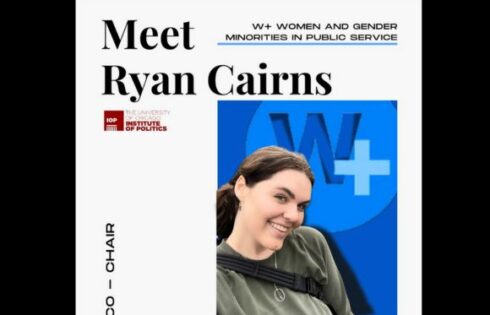
‘Unfortunately, he was denied this opportunity while over 450 lesser qualified minority students, ranging as low as a GPA of 2.82 or an MCAT of 495, were offered admission’
A white male student has sued six Texas medical schools that rejected him for admissions but allegedly admitted other students — namely students of color and women — who had lower MCAT scores.
The class-action lawsuit was filed Jan. 10 by the America First Legal Foundation’s Center for Legal Equality.
It names as defendants Texas Tech University Health Sciences Center, Dell Medical School at the University of Texas at Austin, McGovern Medical School at the University of Texas Health Science Center at Houston, the John Sealy School of Medicine at the University of Texas Medical Branch at Galveston, the Long School of Medicine at the University of Texas Health Science Center at San Antonio, and the University of Texas Southwestern Medical Center.
It names George Stewart, “on behalf of himself and others similarly situated,” as the plaintiff.
“AFL’s client, a white male, applied unsuccessfully for admission to six medical schools in Texas in the 2021-2022 cycle,” a news release from the law center stated.
The Texas Tribune reported that, according to the lawsuit, “Stewart graduated from UT-Austin with a 3.96 grade point average and a biology degree. He scored a 511 out of a possible 528 on the exam required for admission, known as the MCAT, and spent two years applying to medical schools.”
After he was rejected, he filed an open records request and “obtained the race, sex, grade-point average, and MCAT score data for every applicant,” the lawsuit stated.
He found that the “median and mean grade-point averages and MCAT scores of admitted black and Hispanic students are significantly lower than the grade-point averages and MCAT scores of admitted white and Asian students; Admitted female students have lower MCAT scores than admitted male students.”
The lawsuit alleges that at UT-Austin Dell, for example, the 75 percentile MCAT score for an admitted black student was well below the 25 percentile MCAT score for an admitted white or Asian student, and a similar pattern is found at all five other med schools. Similar findings resulted when looking at female scores, the suit claims.
“The data demonstrate that each of the defendant medical schools is providing admissions preferences to female, black, and Hispanic applicants while unlawfully discriminating against whites, Asians, and men in admissions decisions,” the lawsuit alleges.
“… [T]he race and sex preferences that the defendants have established and enforce prevent Mr. Stewart from competing on equal terms with other applicants for admission to these medical schools because Mr. Stewart is a white male. This inflicts injury in fact,” the lawsuit alleges.
The practice violates Title VI and Title IX of federal civil rights laws as well as the Equal Protection Clause of the Fourteenth Amendment, the law center claims.
UT Southwestern Medical, in a statement to Campus Reform, said it “uses a wide variety of other criteria as part of its holistic admissions process to identify applicants who best align with the school’s mission. Numerous variables are utilized to make that evaluation, including characteristics related to leadership, prior life experience, innovation and creativity, teamwork, and community engagement.”
“Test scores, in conjunction with the rigor of pre-med coursework taken, are also utilized to determine competency in the foundational knowledge necessary to begin as a first-year medical school student and are only one aspect of the school’s consideration of applicants.”
But the lawsuit argues Stewart was wronged by such “holistic” admissions practices. It states he grew up in Texas “with the desire to study science, become a physician and serve others with his gifting.”
“He made the sacrifices necessary to excel as a student from an early age and thereafter, graduating from high school with a 4.39/4.0 GPA and from college at the University of Texas at Austin with a 3.96/4.0 unaudited GPA in Biology while also volunteering with various relief and ministry organizations,” the lawsuit stated.
“He worked, interned and volunteered in medical facilities at MD Anderson Cancer Center in Houston, Neofluidics Laboratory in San Diego, and Baylor University Medical Center in Dallas. He also scored a 511 on his MCAT. He believed he would be a good candidate for the Texas medical schools and for two years applied to medical schools hoping to fulfill his dream and calling to become a physician.”
“Unfortunately, he was denied this opportunity while over 450 lesser qualified minority students, ranging as low as a GPA of 2.82 or an MCAT of 495, were offered admission.”
MORE: Supreme Court majority seems skeptical of affirmative action during oral arguments
IMAGE: BYKFA / Shutterstock
Like The College Fix on Facebook / Follow us on Twitter






Please join the conversation about our stories on Facebook, Twitter, Instagram, Reddit, MeWe, Rumble, Gab, Minds and Gettr.